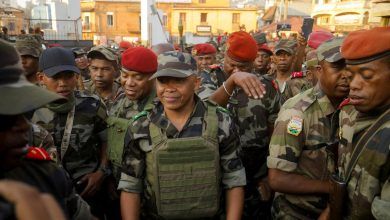
The death toll from the catastrophic flooding in Mokwa, Niger State, has surged to 153, according to the latest figures released by the Niger State Emergency Management Agency (NSEMA) on Sunday.
The flash floods, triggered by intense rainfall between Wednesday night and Thursday, swept through Mokwa Local Government Area, submerging homes, washing away bridges, and displacing thousands.
Rescue workers and local volunteers continue to search through the rubble, with the waters yet to fully recede in some areas.
Ibrahim Hussaini, NSEMA’s acting director general, told Channels Television that additional bodies were recovered late Saturday under a collapsed bridge in Mokwa and were buried early Sunday.
The agency now reports that 3,018 individuals across 503 households have been affected, with 265 homes destroyed, three major bridges damaged, and 11 people injured.
The human toll has been staggering. Mohammed Tanko, a civil servant in his late twenties, stood before the ruins of his family home and recounted, “We lost at least 15 people from this house. Everything’s gone. Property, people—everything.”
Further complicating the death toll is a tragic collapse at a local mosque, where dozens of travellers had reportedly been taking refuge when the rains struck. “We don’t even know where they came from,” said Red Cross coordinator Adamu. “They were just passing through. Now they’re missing.”
Adamu added that more than 100 people remain unaccounted for, while 121 have been treated for injuries in nearby hospitals.
Sabuwar Bala, a 50-year-old yam vendor, barely survived. “I ran out wearing only my underwear. Someone loaned me the clothes I have on now. I couldn’t even save my flip-flops,” she told reporters. “I can’t even locate where my house used to be.”
Scenes of destruction remain widespread. An AFP correspondent on the ground reported that parts of Mokwa were still underwater as of Friday, with major roads impassable and survivors digging through debris with their bare hands. NSEMA officials said excavators are needed to access collapsed structures where more bodies are feared to be buried.
Nigeria’s six-month rainy season is just beginning, and experts warn that this disaster may not be the last. The Nigerian Meteorological Agency had issued flash flood warnings for 15 states — including Niger — just days before the flooding began.
Climate change, poor urban planning, and inadequate drainage have made such disasters deadlier. “This tragic incident underscores the dangers of building on floodplains and the importance of maintaining clear water channels,” the National Emergency Management Agency (NEMA) said in a statement.
In 2024 alone, flooding has already claimed 321 lives across 34 of Nigeria’s 36 states, according to NEMA data — a sign that the country’s infrastructure and emergency systems remain dangerously overwhelmed.
President Bola Tinubu has pledged federal support, with security agencies deployed to assist ongoing rescue operations. But community leaders say a longer-term solution is urgently needed — not just to aid Mokwa, but to prevent future tragedies across flood-prone regions.
As families continue to search for loved ones and makeshift camps fill with the displaced, Adamu of the Red Cross offered a stark reminder: “We can’t give up the search. As long as there are families crying, we must keep looking.”





